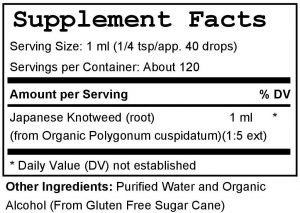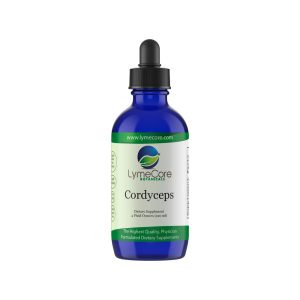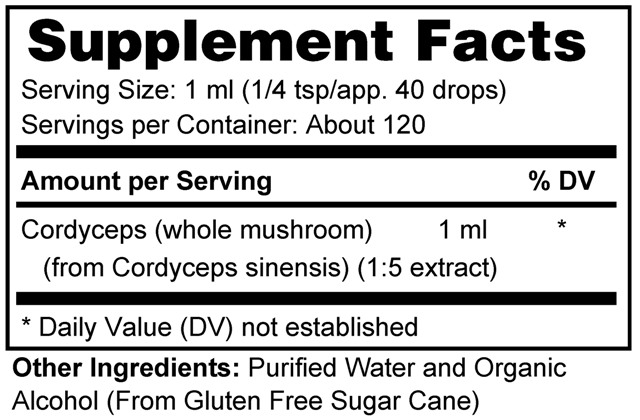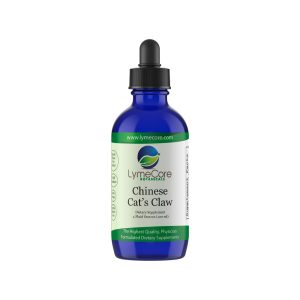Polygonum cuspidatum, commonly known as Japanese knotweed, has been the subject of scientific interest due to its potential benefits in treating tick-borne diseases. The plant contains bioactive compounds such as resveratrol, emodin, and quercetin, which have shown promise in bolstering the immune system and combating inflammation, both of which are vital in the body’s defense against tick-borne infections. These constituents have also displayed antimicrobial properties against certain tick-borne pathogens. Furthermore, research suggests that extracts from Polygonum cuspidatum may offer adjunctive support in conventional treatment approaches for tick-borne diseases.
Properties:
- Antimicrobial Activity: Resveratrol, found in Japanese knotweed, has shown antimicrobial activity against various bacteria, fungi, and parasites. While its impact on tick-borne bacteria specifically is not well-established, it suggests potential benefits in addressing infections associated with tick-borne diseases.
- Anti-Inflammatory Effects: Resveratrol possesses anti-inflammatory properties, which may help mitigate the inflammation associated with tick-borne diseases. Inflammation plays a role in the development of symptoms and tissue damage in these diseases.
- Antioxidant Effects: Resveratrol has antioxidant properties, which can help neutralize harmful free radicals and reduce oxidative stress. Tick-borne diseases can induce oxidative stress, leading to tissue damage and inflammation. Antioxidants may have a protective effect in this context.
Studies:
- “Japanese Knotweed and Lyme Disease: The Giant Awakens” (2013): This review article published in the Townsend Letter highlights the potential of Japanese knotweed in treating Lyme disease. It discusses the antimicrobial and anti-inflammatory properties of resveratrol, a compound found in Japanese knotweed, and its potential to target Borrelia burgdorferi, the bacteria causing Lyme disease.
- “In Vitro Efficacy of Japanese Knotweed and Its Component Resveratrol against Borrelia burgdorferi” (2014): This study published in the journal Pathogens and Disease investigated the antimicrobial effects of Japanese knotweed extract and resveratrol against Borrelia burgdorferi in laboratory settings. The researchers found that both Japanese knotweed extract and resveratrol demonstrated inhibitory effects on the bacteria, suggesting their potential as treatment options for Lyme disease.
- “In Vivo Efficacy of Polydatin against Tick-Borne Anaplasmosis” (2019): This study published in the journal Pathogens explored the potential of polydatin, another compound found in Japanese knotweed, for the treatment of tick-borne Anaplasmosis. The researchers found that polydatin exhibited significant anti-inflammatory effects and reduced bacterial load in mice infected with Anaplasma phagocytophilum, the bacterium responsible for Anaplasmosis.










